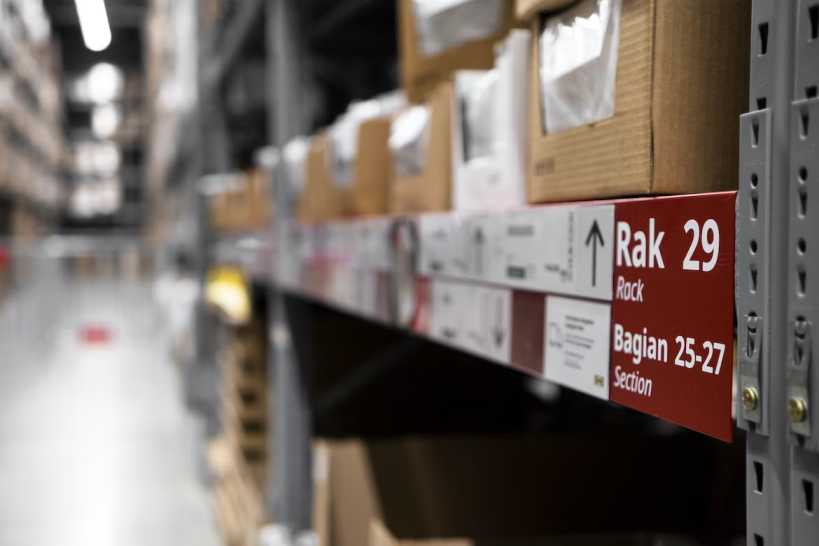Cold chain management is a complex process that requires precise monitoring of temperature, humidity, and other environmental factors to ensure the quality and safety of perishable goods such as food, vaccines, and medicines. However, this process is often plagued by inefficiencies, errors, and a lack of transparency, which can result in spoilage, waste, and fraud.
To address these challenges, many industry players are exploring the potential of blockchain technology to improve transparency and reduce costs in cold chain management. In this article, we will explore the role of blockchain technology in cold chain management and its potential benefits.
Blockchain Technology and its Advantages
Blockchain is an electronic ledger that is decentralized and recorded on a computer network. It allows parties to share a permanent, tamper-proof record of information, without the need for intermediaries such as banks or governments. This technology has many advantages, including transparency, immutability, security, efficiency, and cost-effectiveness.
The importance of blockchain goes beyond just financial transactions; for cold chain management, blockchain technology can provide real-time visibility into the temperature, humidity, and location of products throughout the supply chain, ensuring that they are properly handled and transported.
Let’s take a closer look at these advantages:
1. Tracking Products Using Blockchain Technology
Blockchain technology can be used to track every step in the cold chain, from production to distribution to consumption, using smart contracts that automatically execute when certain conditions are met.
For example, a smart contract could be programmed to release payment to a supplier only when the temperature of a product remains within a specified range during transportation. This would help to reduce the risk of spoilage and fraud in the cold chain, as well as increase trust between parties.
2. Enhancing Traceability with Blockchain Technology
Traceability is a critical aspect of cold chain management, as it allows stakeholders to quickly identify the source of any problems or deviations from best practices in cold chain management. Blockchain technology can be used to create a digital record of every transaction in the cold chain, from the origin of a product to its final destination. This would help to improve the traceability of products, reduce the time and cost of investigations, and prevent unnecessary waste or recalls.
3. Improving Data Accuracy Using Blockchain Technology
Data accuracy is essential in cold chain management, as errors or inconsistencies can lead to incorrect decisions or quality issues. However, data collection and analysis are often fragmented, manual, and prone to errors. Blockchain technology can provide a single, trusted source of data for all parties in the supply chain, ensuring that everyone has access to the same accurate and up-to-date information. This would help to reduce errors, delays, and costs in the cold chain.
4. Fostering Collaboration with Blockchain Technology
Collaboration is key in the cold chain, as it involves multiple stakeholders with different expertise, interests, and goals. However, cooperation is often hindered by a lack of trust, communication, and incentives. Blockchain technology can facilitate collaboration by providing a secure and transparent platform for information sharing, dispute resolution, and incentive alignment. This would help to increase the efficiency and effectiveness of the cold chain, and promote innovation and sustainability.
5. Overcoming Regulatory and Compliance Challenges with Blockchain
Navigating the complex web of regulatory and compliance requirements is a significant challenge in the cold chain industry. Blockchain technology has the potential to simplify and streamline this process, making it easier for businesses to meet their obligations. By maintaining a secure, tamper-proof digital ledger, blockchain can automatically record and store essential data, such as temperature logs, product origins, and transport details, ensuring that all necessary documentation is readily available.
This real-time access to data can facilitate more efficient reporting and auditing, as well as enable companies to demonstrate compliance with regional and international regulations. Additionally, blockchain technology can support the automation of certain compliance processes, reducing the risk of human error and the resources needed for manual data management. As a result, businesses can enjoy improved operational efficiency and a reduced likelihood of costly regulatory penalties.
6. Blockchain and Cryptocurrency in the Cold Chain Industry
As blockchain technology advances, the potential for integrating cryptocurrency payments into the cold chain industry becomes more evident. The use of cryptocurrencies, such as Bitcoin or Ethereum, can provide additional benefits, such as reduced transaction fees, faster payments, and increased security. Businesses in the cold chain industry can explore the potential advantages of using crypto in business operations to further enhance efficiency and transparency within the supply chain.
7. Reducing Environmental Impact through Blockchain-Enabled Waste Reduction
The environmental impact of cold chain management is a growing concern, as waste and inefficiencies contribute to carbon emissions and excessive resource consumption. By leveraging blockchain technology, businesses can significantly reduce waste and minimize their environmental footprint.
Blockchain’s transparency and traceability features enable companies to identify inefficiencies and address them more effectively. For instance, by providing real-time data on product status and location, blockchain can help optimize transport routes, minimize spoilage, and improve resource allocation. This not only results in cost savings for businesses but also reduces energy consumption and the overall environmental impact of the supply chain.
Furthermore, the increased visibility provided by blockchain technology can help companies make more informed decisions about sustainable practices, such as using eco-friendly packaging or optimizing warehouse operations. Ultimately, these improvements can lead to a more environmentally responsible cold chain industry.
Final Thoughts
Blockchain-based technology can potentially transform cold chain management by boosting transparency, traceability, accuracy, and cooperation. By providing a trusted and secure digital ledger, blockchain technology can help to reduce costs, prevent waste, and improve the quality and safety of products.
However, the adoption of blockchain technology in the cold chain requires strong leadership, cooperation, and investment by all stakeholders. The industry should work together to explore the opportunities and challenges of blockchain technology and develop innovative solutions that benefit everyone in the supply chain.


3 thoughts on “The Role of Blockchain Technology in Improving Transparency and Reducing Costs in Cold Chain Management”